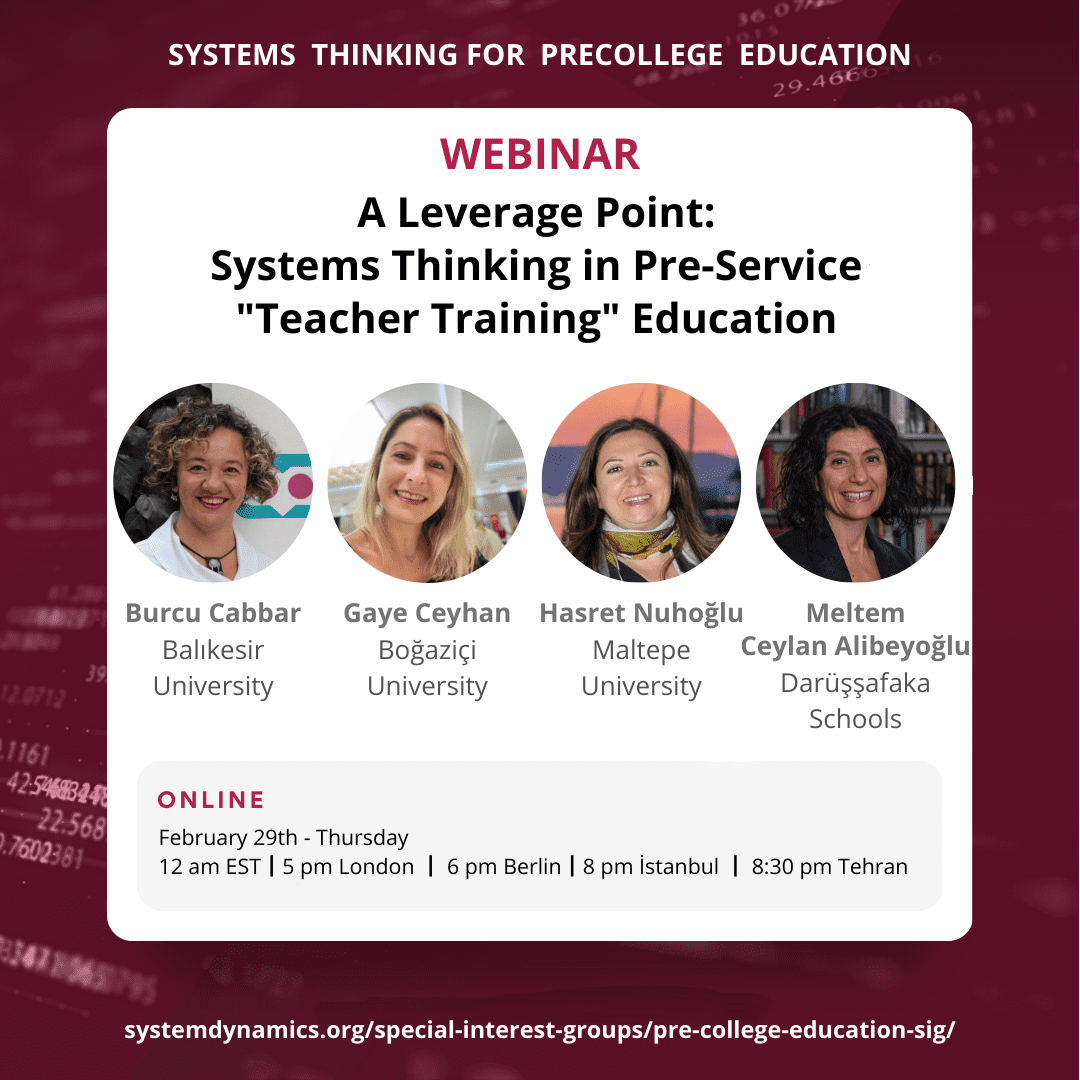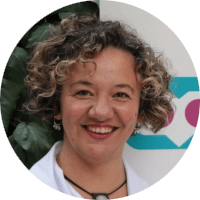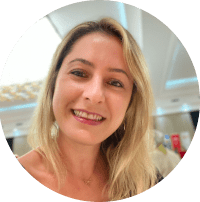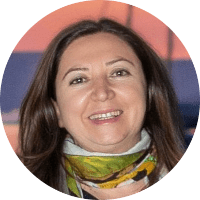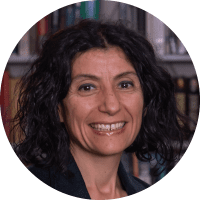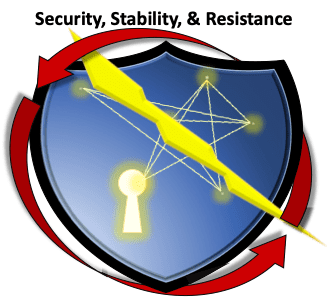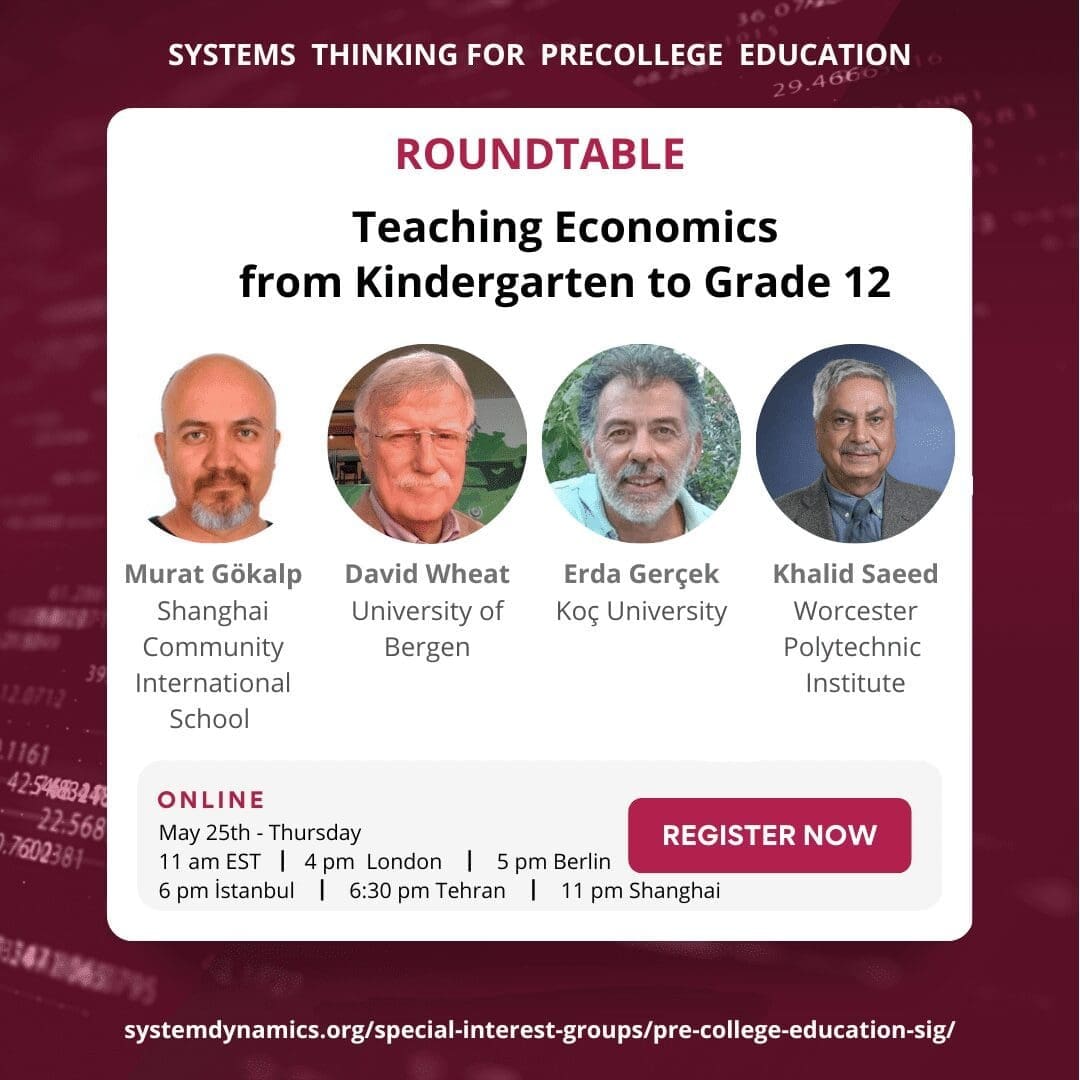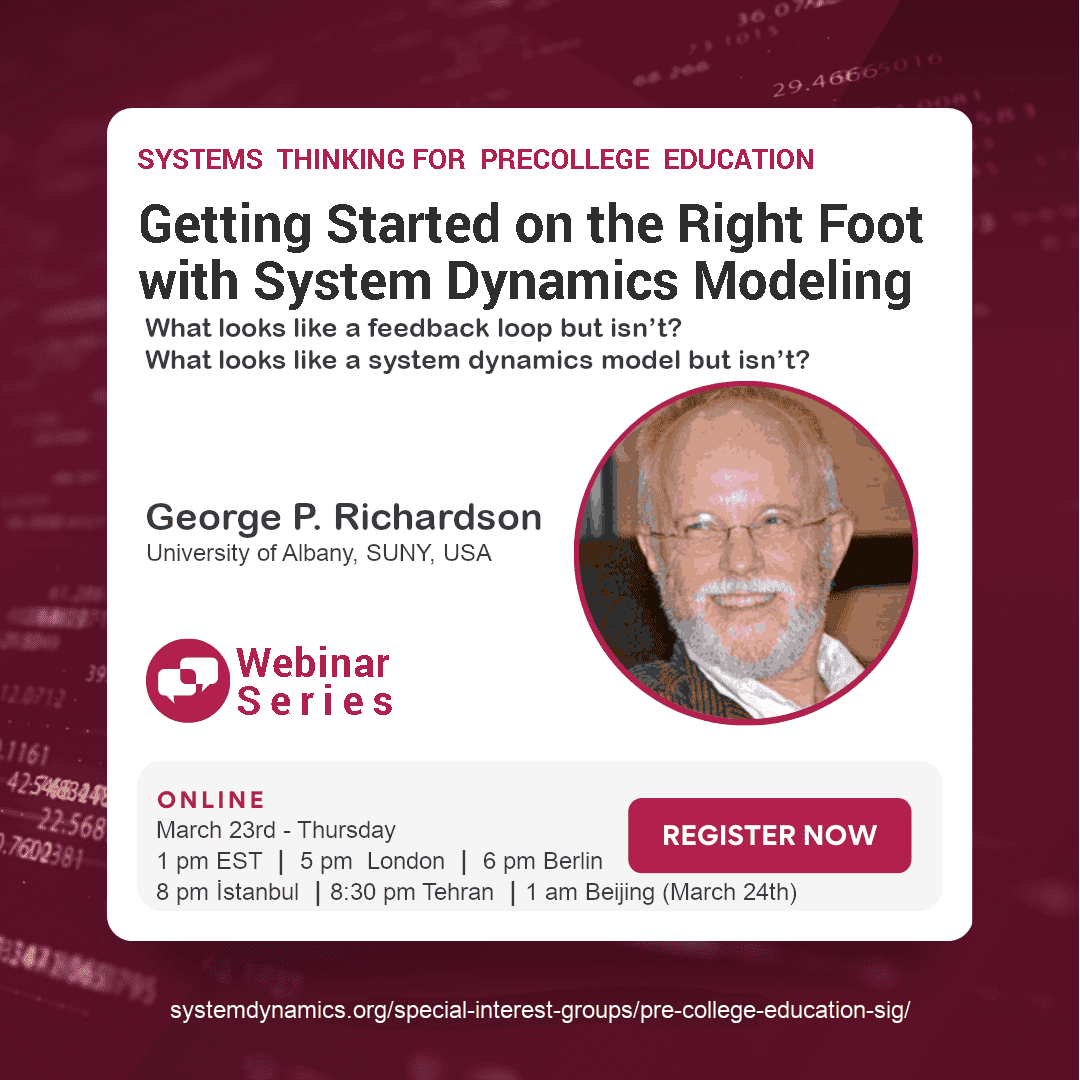Pre-College Education SIG Meeting – Focus idea: Peer bullying
Dear Colleagues,
We would like to invite you to our May System Dynamics Society Pre-College Special Interest Group meeting. We want to have a discussion and model building process on peer bullying in K-12.
We will have two meetings due to time differences. The SIG meetings will happen on:
First meeting: Thursday, March 23 at 1:00 p.m. EST (New York)
Second meeting: Friday, March 24 at 1:00 a.m. EST (New York)
We are planning to have a short presentation by Pascal Gambardella (Psychology and Human Behavior SIG) and longer discussions about peer bullying in K-12.
Pascal’s presentations will be live at the first meeting. At the beginning of the second meeting, we will watch the recording of this presentation.
The workshop format of the meeting is designed to encourage active participation. We highly encourage you to come prepared with questions, contributions, suggestions, and ideas. Your insights will not only enrich the discussions but also provide a platform for collaborative learning and exploration.
We look forward to your active participation in this SIG meeting. Let’s explore the world of systems dynamics together and uncover innovative ways to enhance education.
A Leverage Point: Systems Thinking in Pre-Service “Teacher Training” Education
Dear Colleagues,
We are excited to invite you to our free webinar entitled ‘A Leverage Point: Systems Thinking in Pre-Service “Teacher Training” Education’ on Thursday, February 29, at 12:00 noon EST.
We consider courses that train pre-service precollege teachers to be one of the most critical places impacting in the formation of system citizens. The professors teaching these courses ultimately determine the criteria for topics and methods to be included within the curriculum and the criteria for student academic success.
The infusion of systems thinking in courses that train pre-service precollege teachers has the potential to be one of the most influential points on Donella Meadows’ list of places to intervene in a system, that is, the purpose of the system.
In this webinar, the experiences gained from the experiments carried out in precollege pre-service teacher training courses in Türkiye since 2019, the work done and plans for the future will be shared and a collaborative discussion environment will ensue where the presenters offer suggestions for those who want to undertake similar projects.
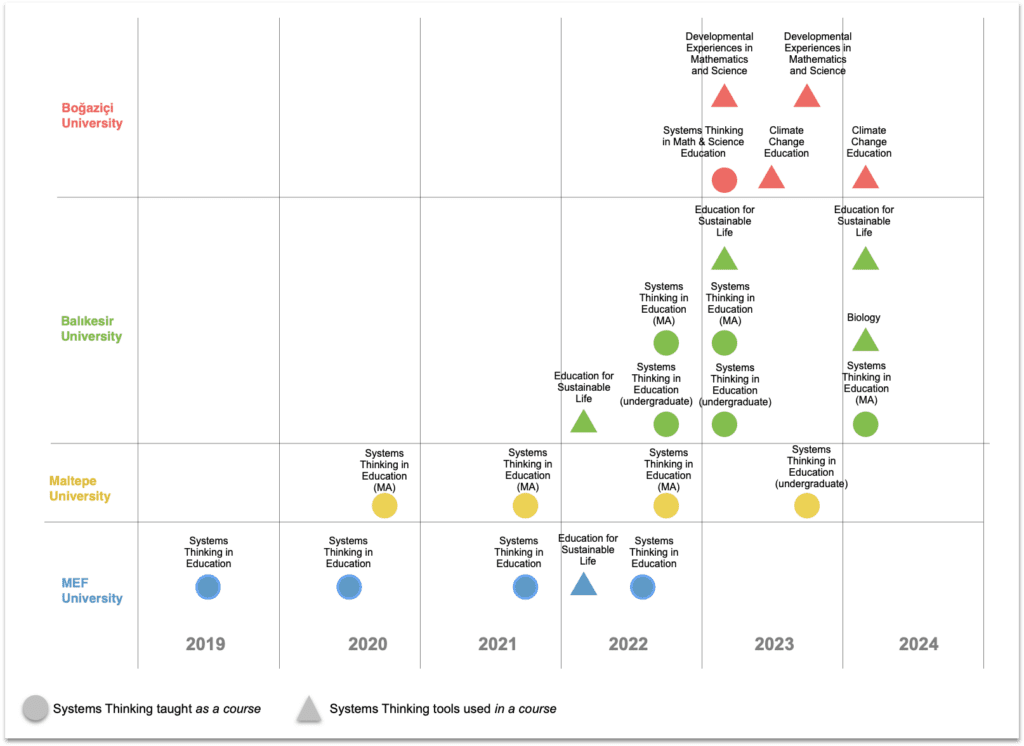 Timeline of courses where systems thinking is/was taught as a separate course (circle) or used as a tool in another course (triangle) by professors of education in Türkiye. Timeline of courses where systems thinking is/was taught as a separate course (circle) or used as a tool in another course (triangle) by professors of education in Türkiye. |
We strongly encourage you to come prepared with questions, contributions, suggestions, and ideas. Your insights will not only enrich the discussions but also provide a platform for collaborative learning and exploration.
We look forward to your active participation in this webinar. Let’s explore the world of systems dynamics together and uncover innovative ways to enhance education.
Best regards – the SIG leadership team.
| Diana Fisher Ülkem Yararbaş Burcu Güngör Cabbar Chang-Kwon (Benjamin) Chung Donald DeLand Ed Gallaher Emre Göktepe Gaye D. Ceyhan |
Matilde (Lin Ya) Hong Meltem C. Alibeyoğlu Prof. Dr. Min-Ren Yan Özgün Kurt Çetinkaya Sena Yıldız Değirmenci Steven Roderick Şebnem F. Gezer |
Security, Stability, and Resistance SIG Monthly Mentoring Meeting
Friday, May 26, 2023: Open discussion on spatial dynamics in system dynamics modeling
SSR SIG monthly mentoring group meets every 4th Friday of the month, at 1300 – 1400 Amsterdam time, 0700 – 0800am Boston time, 1900-2000/7 – 8pm Singapore time.
Details for logging into the meeting can be found at the System Dynamics Society calendar website: https://systemdynamics.org/event/
You can join the meeting through the events calender on the SIG website by (1) clicking on the meeting title, and thereafter (2) clicking on the join button. The zoom session should automatically start.
If you have a topic to present, like work in progress, research idea, research approach or research results please reach out to, Anne Johnson SSR SIG Peer Mentoring Group Chair at security@systemdynamics.org.
Current list of topics and meetings
Friday, May 26, 2023: Open discussion on spatial dynamics in system dynamics modeling
June 23, 2023: TBD
Economics in K-12 Education Roundtable
We would like to invite you to attend our free webinar entitled Economics in K-12 Education Roundtable on Thursday, May 25, at 11:00 am EST. Our panel participants will be:
Murat Gökalp – Teacher of Mathematics and Economics in DP & MYP and TOK, Shanghai Community International School, Shanghai, China
David Wheat – Emeritus Professor of Economics and SD, University of Bergen, Norway
Erda Gerçek – Senior Lecturer in Economics and Strategic Thinking at Koç University, İstanbul, Türkiye
Khalid Saeed – Professor of Economics and System Dynamics at WPI, Worcester, Massachusetts, USA
We will discuss some the following questions:
- What might be the fundamental stocks in an economy?
- What might be the fundamental flows and flow cycles in an economy?
- What might be the fundamental causal loops in an economy?
- Which economic theories should be introduced, in which order?
- Can a historical approach (starting from hunter gatherers) be used in teaching economics?
- How can value, money, price, fiat be taught?
- Which approach should be used when teaching economics? What are the pros and cons of each approach?
- from micro to macro
- from macro to micro
- in paralel – a spiral education
- Should modeling accounting identities be introduced? If yes, how?
- Alternatively, Should Accounting System Dynamics be introduced? If yes, how?
- How should interconnectedness of economy and ecology be taught?
- circular economy, green economy, sustainability, new economy…
- What is or should be the goal of an economic system?
- What is or should be the function of an economic system?
We hope you will join us for this webinar.
Getting Started on the Right Foot with System Dynamics Modeling
Getting Started on the Right Foot with System Dynamics Modeling
What looks like a feedback loop but isn’t?
What looks like a system dynamics model but isn’t?
We all probably know that systems thinking word-and-arrow maps contain feedback loops and system dynamics models contain stocks and flows as well as feedback loops. But it’s not that simple.
- It may be shocking to realize that some word-and-arrow maps aren’t “systems thinking”! Some loops aren’t “feedback loops”. Some aren’t CLDs, even though they contain loops. They may be good thinking, but they may not be “system dynamics thinking”. How can that be?
- Some pictures we draw in STELLA or Vensim may look something like a system dynamics model but they may be misrepresentations. Some may be unintentional imposters. It’s a fact that something can be diagrammed in STELLA or Vensim but not be a “system dynamics model”! How is that possible?
This workshop is designed to be sure we are all aware of what makes a diagram reflect “systems thinking” and what makes a model a “system dynamics model”.
By the end of this workshop, we will all be better systems thinkers and “mappers”. We won’t all be able to be “modelers” (yet), but we will know what a picture has to look like to have a chance to be a good system dynamics model. We will all be stronger members of the system dynamics community.
Presenter: George P. Richardson
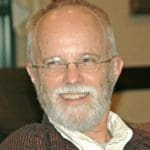 George P. Richardson is Professor Emeritus of public administration, public policy, and information science at the Rockefeller College of Public Affairs and Policy at the State University of New York at Albany. He earned his doctorate under Jay Forrester at MIT and is the author of Introduction to System Dynamics Modeling with DYNAMO (1981) and Feedback Thought in Social Science and Systems Theory (1991), both of which were honored with the System Dynamics Society’s Forrester Award.
George P. Richardson is Professor Emeritus of public administration, public policy, and information science at the Rockefeller College of Public Affairs and Policy at the State University of New York at Albany. He earned his doctorate under Jay Forrester at MIT and is the author of Introduction to System Dynamics Modeling with DYNAMO (1981) and Feedback Thought in Social Science and Systems Theory (1991), both of which were honored with the System Dynamics Society’s Forrester Award.
George has played and sung acoustic folk music for sixty years. He has ridden a motorcycle cross-country from NY State to Seattle, the Olympic Peninsula, and down to Portland. He’s also ridden round-trip the fabled Dalton “Highway” from Calgary to Deadhorse, AK, and Prudhoe Bay, 300 miles north of the Arctic Circle. Both trips took less than sixty years.


